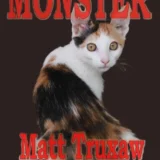
OBIR: Occasional Biased and Ignorant Reviews reflecting this reader’s opinion.

Imps & Minions
Published by tdotSpec Inc. Toronto, Ontario, Canada, August, 2019.
Editors: Don Miasek, K.M. McKenzie, and David F. Shultz
Cover art: Unknown.
NOTE: There are 34 stories in this anthology. That is too many for me to review in one column. Six of the stories are by Canadians. I will review them first. If I have any space left I will arbitrarily select a few more. Hopefully my choices will represent the “flavour” of this anthology which is devoted to the topic of unsung sidekicks in assorted genres.
Moving in Different Circles – by Calder Hutchinson
Premise:
A summoned demon is in no hurry to grant wishes or obey commands. He’s too jaded for that. And cynical. He wonders aloud if the magical powers attributed to the pentagram-within-a-circle device used to summon him have any validity. Why not just step outside the diagram and see what happens?
Review:
Normally demon-summoning stories are close to an automatic rejection as they have become something of a cliché. This one, a wizard’s worst nightmare, is a delightful bit of whimsey. When spells don’t work, logic may be the only weapon at hand, but what if the demon is as intelligent and quick-witted as the sorcerer?
When an Angel Needs an Imp – Gregg Chamberlain
Premise:
Simon is contemplating making a deal with a demon. Not quite up to making a deal with the Devil, but still, it’s important. Kayne, the imp whispering into his left ear, urges him on. Abel, his Guardian Angel, whispers contrary advice into Simon’s right ear.
Review:
A stray, original thought intrudes and what should be routine is suddenly thrown out of whack. The professionalism of all three spirituals is at risk. Simon isn’t the only one who needs to make a decision, and fast. Worst of all, what will management think? Reputations are at stake. A clever bit of fuss. Amusing.
Sidekicks Wanted – by Laura Johnson
Premise:
Frank is a trained and experienced minion, but there’s no future in it. Now that his last employer, Dr. Pain, is dead, he’d rather get a cushy job as a sidekick for a hero, but is that even possible?
Review:
The joy of this story is its exploration of what the jobs of minion and sidekick actually entail. Both are somewhat thankless and lacking in self-respect, yet there are differences. Switching from minion to sidekick is probably an upgrade from the minion’s point of view, but how to convince a Hero it is a good idea? Flies in the face of reason, it does. The arguments pro and con are great fun.
Glimpsing Samson – by D.K. Latta
Premise:
Zeke and Sol are brothers into small-time crime. Trouble is, on a random basis, a superhero shows up and ruins their plans. Eventually they luck out and become henchmen for a supervillain. Actually, though they don’t know it, their troubles are only just beginning.
Review:
This is one of the longer stories in the anthology. It has to be, since it goes into some depth on the motivation of both superheroes and supervillains, and reveals the essential helplessness of anyone dealing “professionally” with either. In some ways both cops and criminals function as guilds of a sort, each with its own distinct culture, and each dependent on the other. So, too, superheroes and supervillains. This can make the day-to-day life of henchmen very complicated. Further, it is a business where success can breed success, yes, but also greater and greater risk. Fatalism is both necessary and inevitable. Frankly, this story implies it is better to remain honest and ordinary. I think that’s a good thing.
Worth Your Salt – by Annelise Knoot
Premise:
Have you ever wished you could send telephone spam callers to hell? Did it ever occur to you that maybe that is where they are calling from?
Review:
Once an Imp always an Imp, but here are ways to get promoted. Humanity doesn’t matter much in hell. This story is focused on office politics and social climbing in the infernal regions. Oh, it’s not the usual superimposed on an exotic background. Most aspects of life in hell are absolutely unique to the environment and the inferences drawn from this fact are carefully thought out and described. It makes for an exciting and grotesquely hilarious read which, no matter how outré, is entirely consistent and logical within the premise. The infamous Checkered Demon (for those of you who remember the underground comics) would be quite at home here. Not ashamed to admit that I quite enjoyed this story. It is so outrageous it appeals to my sense of offbeat and off-the-wall humour. This may strike other readers as odd, but the story is odd. Unusual. Can’t think of anything else I’ve read even remotely like it. Seems to me this is quite an original treatment of hell. Worth reading for that reason alone. And funny. At least, I think so.
Shipping Error – by Robert Dawson
Premise:
Jeanette is elderly, subject to arthritis, and smokes marijuana to combat the pain of her physical ills. Then one day she buys several cans of imported something-or-other that tastes quite nice and makes her feel good. Oddly, the supplier has no record of where the original pallet of cans came from. An accidental shipment, probably, as the cans lack legally-required English-language labelling. The picture would indicate some sort of exotic tropical fruit. But where on Earth from?
Review:
An editor’s note explains this story was originally published in Perihelion in 2015. To which I can add that I chose to publish it in issue #5 of Polar Borealis Magazine in 2018. No surprise it has been reprinted again.
This is a charming story dealing with the more pleasant possibilities of first contact with aliens. It offers the lesson that, if left up to ordinary people (defined loosely), as opposed to policy makers and leaders, first contact might involve a calm reaching out for understanding. In the movies first contact is generally left up to politicians, the military, and a bunch of scientists, always squabbling with each other and fearing the worst. Perhaps it would make more sense to send forth a retiree to offer a cup of tea? Couldn’t hurt. Worth a try. Judging by this quiet, enjoyable story.
The aliens are distinctly alien, by the way. Rather a hoot. The tension in the story is derived from their effort to track the missing shipment. In this era of frequently botched home deliveries it has a certain familiar resonance. Consequently, the reader can easily identify with both main characters. This makes for a nice contrast to the usual ambience of threat and violence found in most first contact stories where one side or the other is the dreaded invader, or at least perceived as such. Here it is just two individual beings pursuing their relatively benign and harmless personal goals. Never mind becoming a Walmart greeter. Perhaps we need to hire retirees as diplomats.
NOTE: And that concludes the list of Canadian authors in this anthology. I will now try to fit in as many of the remainder of contributors as I can within my word limit. Apologies to those left out.
Snip, Fidget, Bottle, and Greeb – by Gary Battleshell
Premise:
Oliver Norman wants to summon a demon for the usual reasons, revenge, greed, and unrequited love. He succeeds, and gets what he wants. Pity it won’t last forever, what with promising his soul in exchange. His newfound girlfriend Susan is studying to be a lawyer. She figures she can get him out of the hellish contract by launching a lawsuit. Bold of her, to put it mildly.
Review:
An interesting variation on the cliché “deal with the Devil” (in this case a demon) concept. For those who’ve never tired of the old Perry Mason TV show this is an intriguing premise. Of course, it can be argued that hell is particularly familiar with the work of both lawyers and judges, which is an unfair advantage of sorts, but not necessarily so if Susan has been paying attention in class and diligent in her research. The law is the law, after all. The outcome is more unpredictable than either side cares for, but neither can resist the challenge. A most entertaining story.
A Thing Called Duty – by Marc Collins
Premise:
She is a robot with but one purpose, to protect the Overlord. Over time many heroes and would-be messiahs arrive to slay the tyrant, but always she intervenes successfully. Now her programming must cope with something new. Betrayal.
Review:
What is this thing called duty? In the case of an artificial intelligence, mere programming. Yes. But is that not the case with humans, too? A matter of programming? The Waffen SS had a motto, something like “Our honour is our loyalty.” Meaningless words? Yet they took them seriously. Pride in their obedience. Passionate about following orders. Essentially an elite dedicated to being absolute slaves. Any group can be trained to think themselves an elite. This transcends all political and cultural boundaries. There is something innately human about achieving self-respect through serving a master without question. Any kind of master. Dictators know this. Sociopaths. Politicians. Cult leaders. And so on.
Is this a flaw? Or, in some perverse way, a virtue? Or maybe it isn’t perverse? It is just human nature? In which case, the intelligence of a robot bodyguard is by its very function perfectly human? I am going to go out on a limb and suggest this story is not really about how an AI would interpret duty, but about how we interpret duty. I offer one explanation in the paragraph above. The story explores other options before concluding with an explanation far more subversive than mine. Thought provoking. Unsettling. An important story to read. It may help you understand others, or even yourself, just a little bit better. Just don’t expect to be reassured.
The Pet – by Patricia S. Browne
Premise:
Lionel is a student at the Royal Academy of the Arcane Arts and Sciences. One night, on the way home past some discarded garbage, he comes across a wounded creature in distress and decides to take it to his apartment. Small, but with beautiful golden fur, it adapts quickly to its new surroundings. For one thing, it keeps all his possession clean and orderly. He doesn’t mind, but it irks him he doesn’t know what it is. Neither does anyone else.
Review:
At first I thought I was treading on Harry Potter territory. Actually, this story develops its own unique approach to a mystic mystery. I was a bit concerned it would turn out to be a shaggy dog story, but the ending is satisfying and even makes a certain amount of sense given the premise. Call it, after the previous dark-minded story, a light-hearted palate-cleansing tale both amusing and entertaining.
A Never-Ending Cry – by Alexandra Grunberg
Premise:
The villagers burned the witch Marla to death. Her familiar, a young black cat, desires revenge.
Review:
Many a black cat was sentenced to death, accused of being a witch’s familiar. So, a cat mourning the death of her mistress must be careful as her very appearance might trigger a vengeful mob. Whether the cat in this story is genuinely a familiar or not is an open question, but it’s desire to avenge Marla’s death is pondered in a very human way, which perhaps indicates a supernatural nature. On the other hand, there is a singular lack of supernatural abilities. The weapon options are those of a normal cat. But if properly utilized, the nature of a cat can be powerful, indeed. This being a very clever cat, she knows exactly what to do to achieve her aim, mainly by turning human nature back on itself. Probably a good thing most cats are not as perceptive as this one.
Brothers in Stiches – by Dantzel Cherry.
Premise:
The master sewed various body parts into a small retinue of beastmen. Now he is dead, accidentally killed by one of his servants. This is good, for it offers them the first full meal they’d had since they died. But what to do now? Not as if they have a bright future ahead of them.
Review:
A rather short story riffing on Dr. Frankenstein and Dr. Moreau motifs. More of a vignette than a story, it does provide some insight into what “people” consisting of multiple body parts might want to do with and for themselves. Breaking open the good doctor’s secret stash of port in order to facilitate planning makes perfect sense to me. Something I might do in similar circumstances. Planning ahead is difficult at he best of times.
Green Bottle Cowboy – by Jonathan Shipley
Premise:
Said cowboy goes every Wednesday to the one remaining honkytonk bar in New York City. Line dancing is his second favourite thing. What happens after the nightclub closes is definitely his favourite thing. An expression of his very nature, you might say. But then the people who disapprove of his kind show up. He’s in trouble now.
Review:
What makes this story interesting is the spectacle of an ancient evil operating in our modern age. The last time he got into a predicament it took a world war to resolve his problem. This time something extremely modern promises to rescue him in a matter of minutes. Who says evil can’t adapt to a changing world? Human ingenuity aids everyone, including every thing.
Runyon the Runt – by Keith P. Graham
Premise:
An imp is summoned to get the goods on an unfaithful wife. An ordinary human PI would have been cheaper. Besides, it’s humiliating and demeaning to do what should have been a human job. Still, a contract is a contract. And then things get complicated.
Review:
This story shows what can happen when pleasure gets in the way of business. And why complexity is a bad idea when utmost simplicity is called for. Even worse, there’s no prestige or sense of accomplishment to be gained. A lose-lose situation for all concerned. A sad and depressing state of affairs which rescues this story from the standard clichés of demon summoning. Can a solution be found? That is what intrigues.
After the Gruffs – Taria Karillion
Premise:
A hard-working Bridge Troll has been physically damaged by an assault by the three Billy Goats Gruff and is unable to work. He is seeking legal compensation.
Review:
No story here. Just a set of legal documents putting forward the Troll’s case, including affidavits by such as the Three Blind Mice and Old Mother Hubbard. A humorous glimpse into the kind of everyday workings of fairy tales were they real and not mythic in nature. Kind of cute. Worth reading to a child already familiar with the characters in question. In that sense a potential minor but amusing addition to the canon of such stories.
A Rosie by Any Other Name – by Donna J.W. Munro
Premise:
The castle lord is proud, as any Satanist would be, that all of his children are hell-spawn constantly tormenting the villagers. All except one, Grendella, who has a heart of gold. She’s driving him to despair. What’s a living personification of raw evil father to do?
Review:
If the standard of proper evil is to be maintained, Grendella needs to accept her responsibility and take being hell-spawn seriously. Needs to grow up, in other words, needs to stop being so childish. Her monstrous mother, Morguen, comes up with a splendid gimmick to teach her daughter demonic maturity, but is Grendella so far gone, so abominably and disgustingly good that the remedy will have no effect? The experiment must be made, must succeed. Otherwise the reputation of the family will be ruined for all eternity. This be a pleasing reversal of the usual moral dilemma in “bad seed” tales.
Better S.A.F. than Sorry – by Margret A. Trieber
Premise:
In a world where just about anyone can be a hero, Annie has been rejected and works in a mundane job explaining to idiots how they have been scammed. Her husband was rejected and is so bitter their marriage has gone sour. Now some bad guys want to recruit her but she doesn’t see any future in becoming a villain. Life seems hopeless.
Review:
This story explores the despair and frustration ordinary people feel in a world where heroes are the sole role model. Hmm, come to think of it, if you substitute ideals for heroes that pretty much sums up the world we live in. Everybody is supposed to live up to this or that standard, and there’s no standard “standard,” just a kaleidoscope of ever-changing demands impossible to live up to even for a moment. No matter what you are or what you do, you will be criticized. Should by some miracle you be praised, you’ll wind up on a pedestal, and all pedestals are shaky and liable to crumble. This story does suggest a solution, but whether it’s a good one that will actually work is up to each reader to decide for themselves. Personally, I assign it a firm “maybe.”
Underspinner – by Sarah Allison
Premise:
When Underspinner is summoned from the nether regions, he and others like him weave webs for their evil masters, usually lords of some dread fortress or another. Their webs trap heroes so they can be slain. He wishes they would praise his weaving, but they never do, tending to shriek mindlessly in fear instead. Still, he’s proud of his work. Till one day his web proves useless, the heroes all-powerful and triumphant. This is against all order and being. The Underspinner vows revenge. Of course, being tiny and weak, his options are limited.
Review:
Ethics and morality are not in question here. All that matters is fanatical single-minded purpose that never stops till vengeance is achieved, or the avenger destroyed. A useful reminder that toppling the supervillain in charge is not necessarily the complete victory most victors hope for. Sometimes you have to watch out for those minor minions who resent being defeated. Modern times have proven winning a war is not enough. Winning the subsequent peace is even more difficult.
NOTE: I’ve run out of space. Apologies to the contributors I did not review. Readers will just have to take my word for it they are all worth reading.
CONCLUSION:
Apart from a few stories that delve into the darker implications of human nature as revealed in fairy tale or fantasy stories, the bulk of this anthology is an exercise in light-hearted whimsey that is very entertaining. A good mixture of what intrigues or amuses. A well put-together anthology, in other words. Good choices made by the editors.
Other anthologies have been put out by the tdotSpec crowd based in Toronto. Later this year they will be releasing the first issue of a magazine. I am looking forward to reading it. Based on what I’ve read in this anthology, I have high expectations. I’ll review it as soon as they send me a copy. Always happy to welcome a new magazine!
Check it out at: < Imps & Minions >










Infernal office politics also feature in CS Lewis’s “The Screwtape Letters” (1942) and some of its literary sequels.
The SS motto was “Meine Ehre heißt Treue” = “My honour is called loyalty” (i.e. to Hitler in person, as in the SS’s pledge of allegiance). All flaws are virtues misapplied.